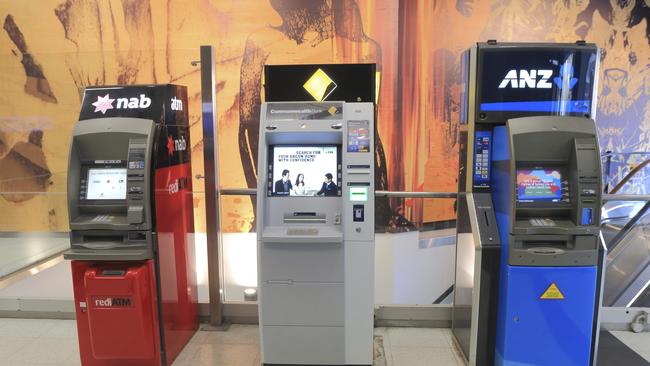ANZ, NAB to pay $50m apiece as court approves rate-rigging settlement
A judge has blasted attempts to “corrupt” the financial system, as she backed NAB and ANZ’s settlements of the BBSW case.

ANZ and NAB have agreed to pay $50m each and issued grovelling apologies to settle legal action brought against them for trying to rig the benchmark bank bill swap rate (BBSW), but not before earning a blast from a judge for their attempts to “corrupt” the Australian financial system.
Federal Court judge Jayne Jagot this morning approved settlements between the Australian Securities and Investments Commission and the banks, leaving Westpac isolated as the only bank still fighting the regulator over its rate-rigging allegations. Its trial continued today in the Federal Court before another judge, Jonathan Beach.
The deals took off the table the harshest accusations made by ASIC — that ANZ and NAB engaged in market manipulation by successfully fixing the BBSW.
Instead, both banks have admitted to the lesser charge of attempting to engage in unconscionable conduct, contrary to the ASIC Act, by trying to rig the BBSW between 2010 and 2012.
NAB admitted to 12 contraventions while ANZ admitted to 10.
The banks have also admitted failing to do everything needed to make sure they provided financial services “efficiently, honestly and fairly”.
Justice Jagot said each bank “has admitted to unethical conduct.”
She said it was difficult to overstate how important the BBSW was to the economy and said counterparties relied on the banks to behave correctly.
The banks’ behaviour involved “gross departures from standards of commercial decency, honesty and fairness,” she said.
“The public should be shocked dismayed and indeed disgusted that behaviour of this type could have occurred,” she said.
She said the banks tried to “corrupt” the financial system for short term gain and their behaviour tended “ to undermine public confidence in whole of the Australian financial system”.
Counsel for NAB, Neil Young, QC, said that “on behalf of NAB, I wanted to express the company’s contrition for what it accepts were serious transgressions of the ASIC Act”.
“NAB recognises its conduct did not meet the high standard expected by the community, by ASIC and by NAB itself,” he said.
“It apologises for its failings.”
Counsel for ANZ, Alan Archibald, QC, said the bank “very greatly regrets the conduct in question and its own shortcomings”.
He said the bank would shortly issue a full apology.
In a statement made to the ASX at around 2.30pm (AEDT), ANZ’s chief risk officer Nigel Williams said, “We know our customers and the community expect better from us and we apologise for both the attempted unconscionable conduct and our inability to prevent or detect the behaviour.”
Counsel for ASIC, John Karkar, QC, said the settlements “will vindicate the commission’s claim that the bank attempted to contravene sections 12B and 12C of the ASIC Act,” which deal with unconscionable conduct.
Each bank has agreed to pay $50m, made up of a $10m pecuniary penalty, $20m towards setting up a financial consumer protection fund and $20m for costs ASIC ran up during the investigation and court case.
They will also enter into enforceable undertakings.
Under the undertakings, ANZ and NAB are to appoint an independent expert with full access to their books and records to overhaul their bank bill and BBSW businesses to prevent any further attempts to fix the rate.
The banks are to pay for the three-year program. At the end of each year, each bank’s chief risk officer will be required to guarantee that the overhaul is working and identify any problems that need to be fixed.
ANZ and NAB has also agreed to suspend traders who tried to fix the rate until they have been re-educated.
In joint submissions, NAB and ASIC said the hefty penalties would deter others from engaging in similar rate-rigging efforts because it was likely they would be widely publicised.
ANZ did not admit that its trading actually changed the BBSW but admitted it created the potential for its dealings in BBSW-related products to be unfair.
The bank also agreed with ASIC that it was important to deter others from trying to rig the BBSW.
It also admitted its misconduct was committed by experienced traders, some of whom had management responsibilities, who it failed to train not to attempt rate-rigging.





To join the conversation, please log in. Don't have an account? Register
Join the conversation, you are commenting as Logout